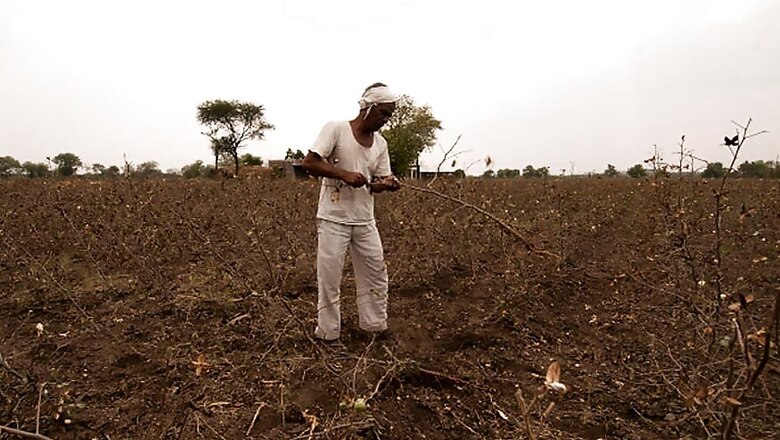
views
An intensive 18-month programme in farm distress-hit Vidarbha region that deployed health workers from within the community has seen an effective reduction in suicidal behaviour besides encouraging more and more people to seek professional help on depression, a new study has found.
Reputed international medical journal The Lancet details the campaign called VISHRAM that was carried out by trained grassroot community health workers – armed with mental health first-aid kits, some with no background in mental health care – in Amravati district of Vidarbha, Maharashtra.
Architects of the programme say that the cost-effective model could now be replicated across such distress-hit pockets of the country with the help of the government.
The study found that after 18 months of the programme (VISHRAM or Vidarbha Stress and Health Programme) suicidal behaviour in the 30 selected villages came down by 50 percent, and people seeking healthcare went up six fold: from 4.3 percent to 27.2 percent. The prevalence of depression also fell from 14.6 percent to 11.3 percent.
The study’s authors however, cautioned that this could not be linked to directly reducing suicide, as the number of participants was too small. Though the suicides in the region came from 28 to 22 in the duration of VISHRAM, the authors said that a direct link could only be established by a randomised clinical trial, for which the numbers needed were too large and thus unfeasible.
VISHRAM was conceived a mental health care addition to the existing socio-economic measures, such as debt relief package that the Government of Maharashtra has extended to the region. Professor Vikram Patel who led the programme said the existing aid packages have not reduced suicidal behaviour of farmers so far. Patel said that the WHO defined suicide as a product of social and economic difficulties and mental health issues such as depression.
A psychiatrist associated with the Public Health Foundation of India and with the London School of Hygiene and Tropical Medicine, Patel had earlier told News18 about the importance of engaging local health workers and of speaking to patients in the language and the metaphors that they would understand, people for whom depression would be an unfamiliar and alienating word.
He stressed on this again and on the importance of frontline ASHA workers, the lay counsellors trained for the study, who came before the psychiatrists in primary health centres and rural hospitals.
Patel had, in December 2016, released two papers on the importance of lay counsellors, people with now medical background, plucked from the community and trained to provide regular counselling.
These counsellors showed remarkable results in helping people with depression, men with alcohol abuse, women with domestic violence, and 70 percent of those under the lay counsellors completed the treatment, very high for people who often had no prior exposure to health care.
It is these counsellors and community workers who could talk to the largely agrarian population in the Amravati, talk about the ‘tension’ people felt and helped them realise this ‘tension’ was depression and how to cope, said Patel and Suvarna Damle of Prakriti, a local NGO that helped implement the programme.
The frontline workers deployed by the programme were intimately familiar with the problems the rural community faced, such as no empathy from villagers for families that had suffered a suicide, especially for widows. VISHRAM then worked with existing resources, the only new addition being the 10 lay counsellors. The authors see it as a cost effective and efficient model that can be scaled up or implemented in different parts of the country, but it needs government help.
Through two surveys, a baseline survey 1465 of before the programme started and a follow-up of 1887 people after it ended, all randomly selected, the study could measure and close the treatment gap in the communities. It found that people seeking more access to care were evenly distributed across caste, class, gender, religion, even if their reasons for needing help were different.



















Comments
0 comment